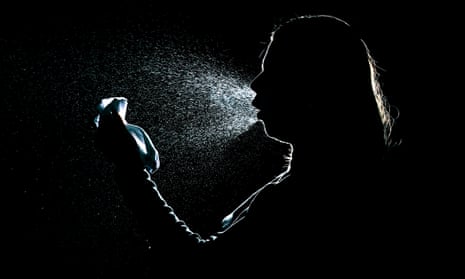As temperatures drop and November rain falls, the seasonal onslaught of coughs, sore throats and sniffles may feel inevitable, but does constant exposure to everyday infections such as colds or influenza drain us or make us stronger?
Our immune systems are often said to have memory, meaning that if an individual has previously been exposed to an infectious bug, such as a virus, specialised immune cells that remember what it looks like will continue to circulate in the blood and body fluids, ready to trigger a rapid immune response should they encounter it again. The same principle underlies vaccination – only in this case, there is no need to risk a serious infection with a virus or bacterium to develop a memory of it.
Crucially, this “attacking arm” of our immune system is specific to the pathogen we have previously encountered. “Trying to build immunity to lots of infections is self-defeating – we just get a nasty infection but it doesn’t protect us against others,” said Prof Sally Bloomfield, the chair of the International Scientific Forum on Home Hygiene.
Even catching a cold may not protect you against catching another one a few weeks later. Prof Deborah Dunn-Walters, the chair of the British Society for Immunology’s Covid Taskforce, said: “We call it the common cold, but it is not one agent that gives you a common cold – there are lots and lots and lots of different agents.”
On the other hand, zero exposure to disease-causing pathogens isn’t necessarily good for us either. After Covid restrictions were lifted there was a surge in cases of respiratory syncytial virus – a common cause of acute lower respiratory infections in young children. “Usually, it is a winter virus, but after people started mixing again we saw lots of children with the virus during all seasons,” said Prof Pablo Murcia, a virologist at the University of Glasgow.
Exposure, little and often, may help to refresh the immune system’s memories of commonly circulating bugs, as well as updating them with information about new variants.
However, it is not necessary to inhale or ingest large doses of them to trigger the desired effect.
“Exposure and disease are two different things,” Murcia explained. “We get exposed to viruses and other pathogens all the time, and often we mount a response without even realising that it’s there. What I wouldn’t advise is deliberately trying to get infected, because every infection has a risk.”
Not everyone’s cold will be mild. “How seriously you’re affected by an infection depends on how old you are, and how much [of the pathogen] you were exposed to,” said Dunn-Walters, a professor of immunology at the University of Surrey. “Everybody who is over a certain age who gets these colds and things realises that it takes a lot out of you. Younger people might be able to shrug it off, but older people should avoid getting repeated infections.”
It is also impossible for people to be selective about their exposure to bugs – breathing in common cold-causing rhinoviruses, or picking them up off surfaces, puts people at risk of other illnesses, including Covid.
Besides the risk of long Covid, there is mounting evidence that Sars-CoV-2 may have a negative impact on the immune system for weeks or months after the infection has subsided. For instance, recent research by Akiko Iwasaki, at the Yale School of Medicine in New Haven, Connecticut, has identified an altered balance of circulating immune cells in people with long Covid.
after newsletter promotion
Dunn-Walters said: “They are showing lots of changes that aren’t what I would call strengthening the immune system. Rather, Covid-19 appears to be skewing the immune system in not a very good way, meaning people may not be able to react to other infections as well.”
An article in Nature Communications this week reported on evidence that exposure to Sars-CoV-2 may reduce the diversity of bacteria in our guts, potentially creating space for antibiotic-resistant microbes to thrive. “Our results highlight how the gut microbiome and different parts of the body’s immune system are closely interconnected. An infection in one can lead to major disruptions in the other,” said the study’s author, Dr Jonas Schluter, at NYU Langone Health, in New York.
None of this is to say that we need to return to social distancing or mandatory mask-wearing. But if a person is sick – or would like to avoid becoming so – avoiding crowded indoor spaces, and masking up when planning to enter them remains a good idea. So too is regular hand washing, and coughing or sneezing into the elbow.
From influenza to winter vomiting bugs, there are plenty of nasties looking for a warm, moist host in which to reproduce as autumn turns to winter. Do you really want that host to be you?
